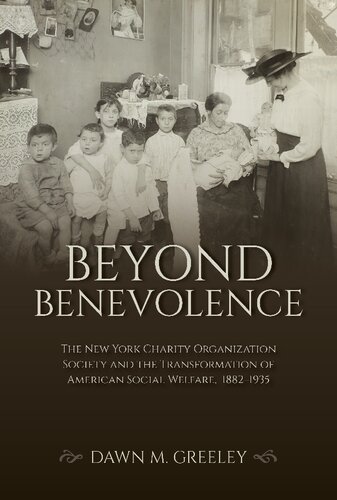

Most ebook files are in PDF format, so you can easily read them using various software such as Foxit Reader or directly on the Google Chrome browser.
Some ebook files are released by publishers in other formats such as .awz, .mobi, .epub, .fb2, etc. You may need to install specific software to read these formats on mobile/PC, such as Calibre.
Please read the tutorial at this link: https://ebookbell.com/faq
We offer FREE conversion to the popular formats you request; however, this may take some time. Therefore, right after payment, please email us, and we will try to provide the service as quickly as possible.
For some exceptional file formats or broken links (if any), please refrain from opening any disputes. Instead, email us first, and we will try to assist within a maximum of 6 hours.
EbookBell Team

4.1
70 reviewsA comprehensive history of one of the largest charitable organizations in early modern America.
Drawing on extensive archival records, Beyond Benevolence tells the fascinating story of the New York Charity Organization Society. The period between 1880 and 1935 marked a seminal, heavily debated change in American social welfare and philanthropy. The New York Charity Organization Society was at the center of these changes and played a key role in helping to reshape the philanthropic landscape.
Greeley uncovers rarely seen letters written to wealthy donors by working-class people, along with letters from donors and case entries. These letters reveal the myriad complex relationships, power struggles, and shifting alliances that developed among donors, clients, and charity workers over decades as they negotiated the meaning of charity, the basis of entitlement, and the extent of the obligation between classes in New York.
Meticulously researched and uniquely focused on the day-to-day practice of scientific charity as much as its theory, Beyond Benevolence offers a powerful glimpse into how the trajectory of one charitable organization reflected a nation's momentous social, economic, and political upheavals as it moved into the 20th century.